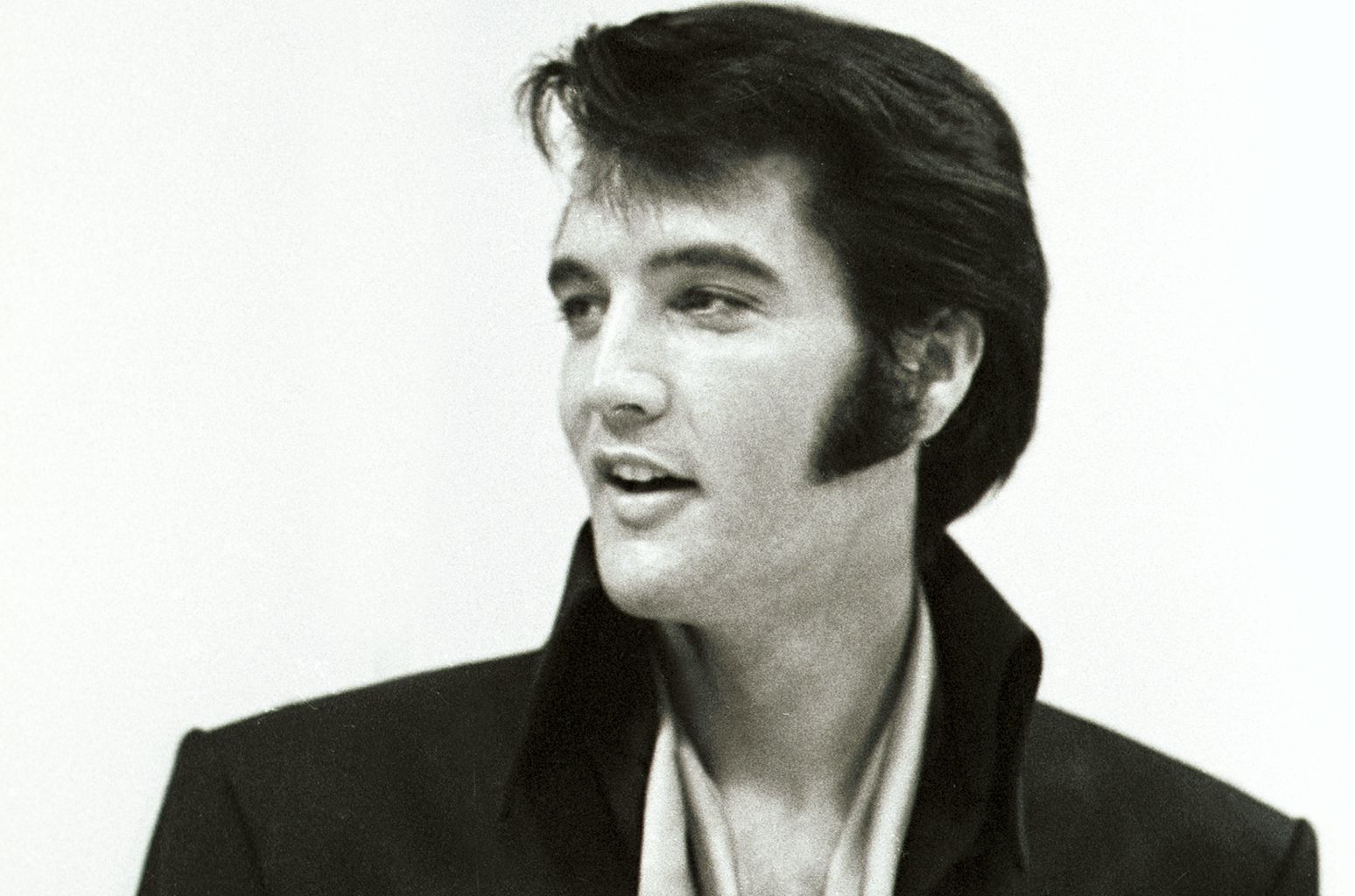How Much Was Elvis Presley Worth At His Death? Unraveling The King's Financial Legacy
The enduring fascination with Elvis Presley, the King of Rock 'n' Roll, goes far beyond his music and iconic performances; it often extends to his personal life, and, frankly, his finances. People are naturally curious about the wealth of such a colossal figure, you know, someone who shaped an entire era. It's a common thought to imagine that a superstar of his magnitude must have amassed an incredible fortune, perhaps living a life of endless opulence without a care in the world for money. That's a pretty natural assumption, isn't it?
Yet, the reality of Elvis's financial situation at the time of his passing in August 1977 tells a rather different story, one that is, in a way, far more complex than just a simple tally of riches. His journey from humble beginnings to global superstardom was certainly meteoric, bringing with it an astonishing flow of income. But, as we'll discover, how much of that truly remained, and what challenges faced his estate, makes for quite a compelling narrative.
So, if you've ever wondered about the actual financial standing of the King when his life ended, you're certainly not alone. We're going to take a closer look at the figures, the decisions, and the remarkable transformation that happened after his death, which is, honestly, quite a turnaround story.
Table of Contents
- The King's Journey: A Brief Look at Elvis Presley's Life
- The Question of "Much": Understanding Elvis's Financial Landscape
- The Financial Reality at His Passing: August 16, 1977
- The Remarkable Turnaround: Priscilla Presley's Vision
- People Often Ask About Elvis's Money
The King's Journey: A Brief Look at Elvis Presley's Life
Before we get into the specifics of his financial standing, it's helpful to remember the extraordinary life Elvis Presley lived. He was, honestly, a cultural force like no other, changing music, fashion, and performance forever. His story is one of incredible highs and, you know, some very public struggles, which arguably played a part in his financial picture.
Personal Details & Biography
Elvis Aaron Presley was born into a modest family in Tupelo, Mississippi. His rise to fame was incredibly swift, practically overnight, transforming him from a truck driver into a global sensation. He became known for his distinctive voice, his energetic stage presence, and, of course, those famous hip gyrations that shocked some and thrilled many. He truly was, in some respects, a phenomenon.
| Detail | Information |
|---|---|
| Full Name | Elvis Aaron Presley |
| Born | January 8, 1935, Tupelo, Mississippi, U.S. |
| Died | August 16, 1977, Memphis, Tennessee, U.S. |
| Occupation | Singer, Musician, Actor |
| Spouse | Priscilla Presley (m. 1967; div. 1973) |
| Children | Lisa Marie Presley |
| Notable Achievements | Grammy Awards, Grammy Lifetime Achievement Award, Inducted into Rock and Roll Hall of Fame, Country Music Hall of Fame, Gospel Music Hall of Fame, and Rockabilly Hall of Fame. Sold over 500 million records worldwide. |
The Question of "Much": Understanding Elvis's Financial Landscape
When we ask "how much" Elvis was worth, we're really asking about a great quantity, a substantial amount of his financial standing, you know, a significant figure. The word "much" here implies a large quantity or degree, something far from negligible. It's about understanding the extent of his wealth, or perhaps, the lack thereof, at a particular point in time. His earnings were, by any measure, very considerable throughout his career, but several factors influenced what remained.
Early Earnings and the Colonel's Grip
From the moment he signed with RCA Records in 1955, Elvis started making a lot of money. His early hits like "Heartbreak Hotel" and "Hound Dog" sold millions, and his concerts were sell-outs. However, his manager, Colonel Tom Parker, famously negotiated a 50/50 split of all earnings, which was, honestly, quite an unusual and very high percentage for a manager, even back then. This meant that for every dollar Elvis earned, half of it went directly to the Colonel. So, while the gross income was immense, the net amount reaching Elvis was, in a way, cut significantly right from the start.
Despite this arrangement, the sheer volume of his work ensured he still received a very substantial income. Record sales were through the roof, film contracts kept coming, and live performances drew enormous crowds. He was, quite literally, a money-making machine for RCA and for himself, even with the Colonel taking such a large share. This was, in fact, a period where "much" money was definitely flowing in.
Lavish Spending and Generosity
Elvis was known for his incredible generosity and his love for a lavish lifestyle. He bought cars, houses, and gifts for family, friends, and even complete strangers. It wasn't uncommon for him to buy new Cadillacs on a whim for his entourage, or, you know, just because he felt like it. Graceland itself, his beloved home in Memphis, required considerable upkeep and a large staff to maintain. This level of spending, while reflecting his big heart, did mean that much of his earnings were spent almost as quickly as they came in. He just loved to share his good fortune, which is understandable, really.
His entourage, often referred to as the "Memphis Mafia," lived off his payroll, and their expenses, including travel and accommodations, were all covered by Elvis. This was, basically, a huge ongoing cost. The cost of living the life of a superstar, especially one who was so generous, added up to a very significant sum. It illustrates that even with "much" coming in, "much" was also going out.
The Vegas Years and Declining Health
In the late 1960s and 1970s, Elvis transitioned into highly lucrative Las Vegas residencies and extensive touring. These engagements brought in millions of dollars, yet the expenses associated with these shows were also incredibly high. Maintaining a large band, backup singers, elaborate costumes, and extensive security added to the overhead. His health, sadly, began to decline during this period, affecting his ability to consistently perform at his peak and, arguably, impacting his overall financial management. He was, at times, quite unwell, which must have been a strain.
The constant touring and demanding schedule also led to increased reliance on medications, which, you know, incurred their own costs, both directly and indirectly through health issues. While the money continued to flow in, it was, in some respects, becoming a treadmill of earning to cover ever-increasing expenses. The question of "how much" he truly had available became more complicated as his health worsened and his spending habits continued.
The Financial Reality at His Passing: August 16, 1977
When Elvis Presley died on August 16, 1977, the world mourned the loss of a legend. But behind the public outpouring of grief, his estate faced a rather stark financial reality. The answer to "how much was Elvis Presley worth at his death" is, honestly, quite surprising to many people who assume a much higher figure.
The Initial Valuation
At the time of his death, Elvis Presley's net worth was estimated to be around $5 million, though some reports placed it closer to $10 million, and others even lower in terms of liquid assets. This figure included Graceland, his airplanes, cars, and other personal property. However, it's important to remember that this was his gross estate value. After accounting for debts, taxes, and ongoing expenses, the liquid assets were, in fact, very limited. He was, in a way, asset-rich but cash-poor.
There were, for instance, significant outstanding bills and loans. The estate faced substantial inheritance taxes, which further depleted the available cash. For someone who had earned hundreds of millions of dollars throughout his career, the remaining sum seemed, frankly, quite modest. This was due to a combination of his high spending, the large percentage taken by Colonel Parker, and what many consider to be poor financial management during his lifetime. It wasn't "much" cash at all, comparatively speaking.
The Estate's Challenges
The immediate aftermath of Elvis's death presented a series of financial challenges for his estate. The inheritance taxes alone were, honestly, a huge burden, estimated to be around $10 million, which was more than the liquid assets available. Maintaining Graceland, which was a very large property, also incurred significant costs, including utilities, staff, and general upkeep. The estate was, basically, struggling to cover these immediate expenses.
His only heir, his daughter Lisa Marie Presley, was just nine years old, and the estate was managed by a trust. The trustees, including Elvis's father Vernon Presley, and later Priscilla Presley, had to figure out how to generate enough income to pay the taxes and keep Graceland from being sold off. It was a pretty dire situation, you know, considering the global fame of the man. They had to think about how to turn "not much" into something substantial.
The Remarkable Turnaround: Priscilla Presley's Vision
The story of Elvis Presley's estate is not just about its low valuation at his death; it's also about one of the most remarkable financial turnarounds in celebrity history. This transformation was largely spearheaded by Priscilla Presley, his former wife, who took control of the estate's management in 1979. She had, basically, a very clear vision for the future.
Graceland Opens to the Public
The pivotal decision that saved the estate was the opening of Graceland to the public as a museum on June 7, 1982. This was, honestly, a bold move, as many felt it would diminish the mystique of the King. However, it proved to be an instant success, drawing in hundreds of thousands of visitors annually. The revenue generated from ticket sales provided the much-needed cash flow to pay off debts, cover taxes, and ensure the long-term preservation of Graceland. It was, quite simply, a brilliant idea that brought in much, much more money.
The public's desire to step inside the King's home was immense, and the tours offered a unique glimpse into his private world. This steady stream of income was, in a way, the lifeline the estate desperately needed. It transformed Graceland from a financial drain into a powerful engine for the estate's growth, and, frankly, it still is today.
Licensing and Merchandise
Beyond Graceland, Priscilla Presley and the management team, forming Elvis Presley Enterprises (EPE), embarked on a strategic campaign to license Elvis's image, music, and name. This involved careful and thoughtful deals for merchandise, films, documentaries, and even stage shows. They ensured that his brand was protected and, you know, used in ways that honored his legacy while generating significant income. This was, honestly, a very smart approach.
The careful management of his intellectual property allowed the estate to generate vast sums of money, far exceeding what Elvis had accumulated in his lifetime. The licensing deals were, basically, a goldmine, turning his enduring popularity into a sustainable business. This meant that the estate could finally accumulate "much" wealth, securing its future for generations. You can see his image on so many things, which is a testament to this strategy.
The Estate's Value Today
Thanks to these strategic decisions, the value of Elvis Presley's estate has grown exponentially since his death. Today, estimates place its worth in the hundreds of millions of dollars, a truly staggering figure compared to the mere millions it was valued at in 1977. This transformation is, arguably, one of the most successful examples of posthumous celebrity brand management. It shows what can happen with, you know, good planning and a bit of foresight.
The estate continues to thrive, with Graceland remaining a top tourist attraction and new projects, like biopics and touring exhibitions, keeping Elvis's legacy alive and generating income. It's a testament to the enduring power of his music and image, and the smart business decisions made by those entrusted with his legacy. His financial story is, in a way, far more inspiring after his death than it was during his life, showing how much can change.
People Often Ask About Elvis's Money
Many people are curious about Elvis's financial journey, and there are some common questions that pop up regularly. It's understandable, really, given his status.
How much did Elvis make in his lifetime?
While it's difficult to pinpoint an exact figure, Elvis Presley is estimated to have earned hundreds of millions of dollars throughout his career. Some sources suggest figures upwards of $100 million to $1 billion in gross earnings, especially when adjusted for inflation. However, as we discussed, a significant portion of this went to Colonel Tom Parker, and much was spent on his lavish lifestyle and generosity. So, his total earnings were "much," but his net worth at death was not as much.
Did Elvis die broke or in debt?
Elvis Presley did not die "broke" in the sense of having no assets, but he was certainly not as wealthy as his fame suggested, and his estate faced considerable debt and liquidity issues. His assets, like Graceland, were valuable, but there wasn't much cash available to cover the immediate expenses and inheritance taxes. The estate was, in a way, in a precarious financial position, requiring a major overhaul to become solvent and profitable. It was a very challenging situation, to be honest.
Who inherited Elvis Presley's money?
Elvis Presley's will left his entire estate to his only child, Lisa Marie Presley. Since she was a minor at the time of his death, the estate was managed by a trust until she turned 25. After Lisa Marie's passing in January 2023, the estate's primary beneficiaries became her three daughters, Riley Keough, Harper Lockwood, and Finley Lockwood. The legacy, basically, continues through his family.
To learn more about the incredible impact of Elvis Presley's music and life, you can explore the Biography.com page on Elvis Presley.
You can also find more details on this page .

Elvis Presley Before His Death

Elvis Presley Death Date - Death Date Calculator

Elvis Presley Death Autopsy